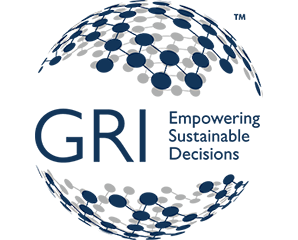 Sustainability reporting includes, but is not limited to, measuring, understanding, and communicating environmental, social, and governance performance. Through reporting, a company can gain an understanding of stakeholder and business material impacts to set goals, manage change, and mitigate risk. There are many questions to answer whether you are a novice or experienced reporter. Where and how do you begin? What stakeholders do you consider? What metrics should be tracked? How do you put all this information together? This is where GRI comes in.
Sustainability reporting includes, but is not limited to, measuring, understanding, and communicating environmental, social, and governance performance. Through reporting, a company can gain an understanding of stakeholder and business material impacts to set goals, manage change, and mitigate risk. There are many questions to answer whether you are a novice or experienced reporter. Where and how do you begin? What stakeholders do you consider? What metrics should be tracked? How do you put all this information together? This is where GRI comes in.
The Global Reporting Initiative (GRI) is an independent international organization that has pioneered sustainability reporting since 1997. With a community committed to demonstrating how transparency can be a catalyst for change, the GRI Sustainability Reporting Standards have been adopted by businesses worldwide, of all sizes and sectors, to understand and communicate their impact on sustainability issues.
Why Report?
Of the largest 250 companies in the world, 93% report on sustainability issues. Besides simply saying, “everyone is doing it”, there are many reasons why a company should report.
1. Build and maintain trust: Transparently disclosing information relating to issues other than financial ones can enhance business reputation and branding while demonstrating to stakeholders that you care about how your daily operations may impact them.
2. Mitigate risk: By collecting and tracking data on a variety of issues, you can identify and manage risks, thereby avoiding costly reactive decisions.
3. Reduce costs: With a set of stakeholder-influenced goals, you will be able to streamline processes and focus efforts in areas that will impact you the most.
4. Increase value: This is done by building sustainability objectives and continual improvement into your daily operations.
5. Identify opportunities: Thorough understanding of material impacts and risks creates an opportunity for innovation and communication between different departments with potential to increase your company’s bottom line.
Effectively reporting on sustainability issues, accomplishments, goals, and actions, demonstrates a commitment to continual improvement in all processes of a company. Commonly referred to as a Sustainability Management System, the integration of sustainable practices into daily business operations can improve compliance, efficiency, and company value. Internal and external reporting is an essential part of an effective change management strategy, enhancing employee engagement and building customer loyalty.
How 3R Can Help
Sustainability reporting begins long before the creation of the actual report. If this is your company’s first report, the task of collecting all of the relevant data can be daunting. The consultants at 3R are well-versed in assisting businesses to identify key stakeholders, determine material impacts, set goals, and track progress toward those goals, to create a GRI-based report.
For those companies which are looking to gain greater value, reporting needs to move from a once-a-year look-back, to building sustainability into its management system. The greatest value comes from incorporating the data and tools into business operations and the management review process so that a company can course correct and strive for continual improvement throughout the year.
3R has seen numerous businesses improve their market rating and reap the benefits of creating a sustainability report. Contact us today to find out how we can help you create a GRI complaint sustainability report!